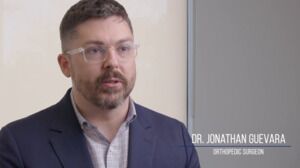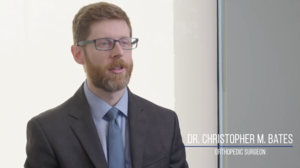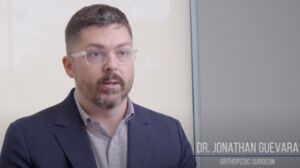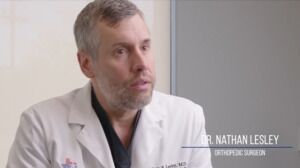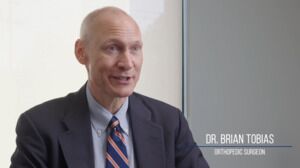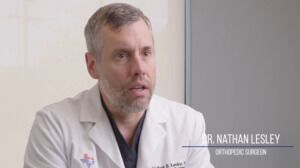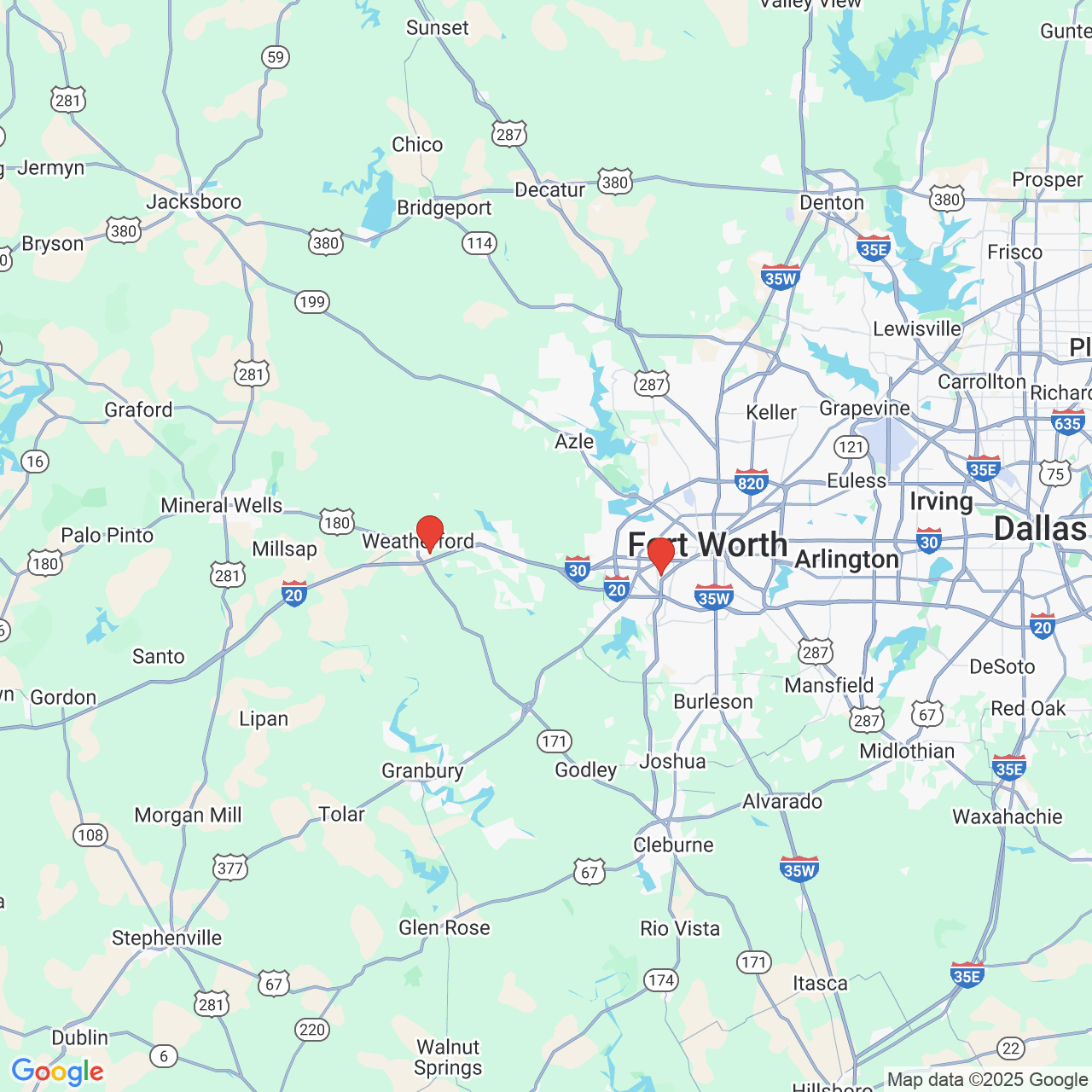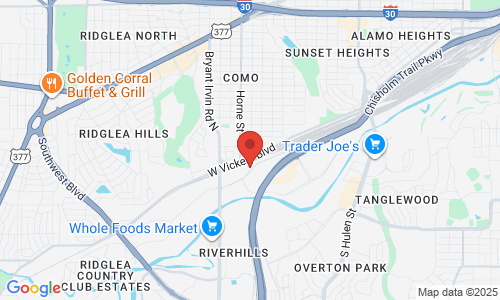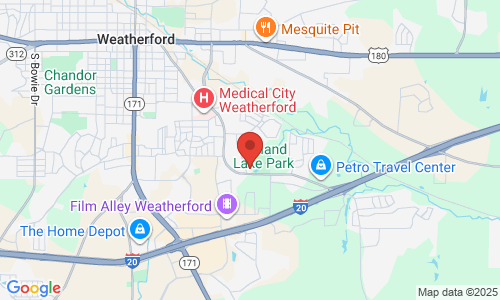Description
Dr. Jonathan Guevara discusses how arthritis and injury often lead to the need for shoulder surgery. This solution is only recommended after a detailed diagnostic process and a discussion of your goals and needs. If you've had multiple unsuccessful attempts to manage your condition without surgery, this solution may be right for you.
View transcript
[00:00:03.480]
Hi, I'm Jonathan Guevara.
[00:00:08.320]
I'm the Shoulder and Elbow Specialist here at the Hand to Shoulder Center.
[00:00:12.200]
A lot of times people come to see me with shoulder pain or elbow pain.
[00:00:16.640]
That can be from arthritis or injury.
[00:00:21.120]
Sometimes they've had this condition for years,
[00:00:23.480]
sometimes is just a matter of a few weeks.
[00:00:26.240]
Another thing that can prompt a visit with an orthopedic surgeon
[00:00:30.320]
is a change in your function.
[00:00:32.560]
Maybe you had an injury and now you can't raise your arm anymore,
[00:00:35.160]
can't use your elbow normally.
[00:00:37.440]
You're developing pain in the upper back, on the side of the arm.
[00:00:41.200]
All those conditions, those are things that I treat.
[00:00:45.480]
In our office, when you get an appointment,
[00:00:48.040]
either referrals made and you're calling in
[00:00:50.680]
to get the appointment made or sometimes you've found us online
[00:00:55.960]
or your doctor told you about us.
[00:00:58.040]
As we get to know each other and we begin to learn
[00:01:00.240]
and review the X-rays to see what your condition is,
[00:01:03.040]
I will start talking about a treatment plan
[00:01:04.360]
and come up with some goals.
[00:01:06.280]
What are you looking for?
[00:01:07.360]
Pain relief? Improved function? Maybe you just want to sleep at night.
[00:01:12.080]
There's all kinds of different goals to think about,
[00:01:15.280]
and then we talk about it and come up with a plan together.
[00:01:19.240]
The way people find out if they're a candidate for surgery is
[00:01:22.960]
you've essentially had multiple attempts
[00:01:26.880]
at trying to manage your condition without surgery.
[00:01:31.200]
I try that with everybody.
[00:01:32.520]
That's something we go through at the very first visit.
[00:01:35.600]
We're usually doing injections,
[00:01:37.600]
therapy or some combination thereof, just to get your symptoms under control.
[00:01:42.160]
If that fails to work, we may start talking about surgery,
[00:01:44.800]
and when we do,
[00:01:46.640]
we'll have a plan that is goal-oriented
[00:01:50.520]
and pretty uniquely customized to the patient
[00:01:52.680]
in terms of what time of the year, what time of day,
[00:01:55.600]
what are we doing, when can we recover or how much help to have at home?
[00:02:00.040]
That's often a very one-on-one conversation
[00:02:02.920]
when we decide for surgery.
[00:02:04.520]
It's definitely a relationship-building process
[00:02:07.640]
to decide which surgery is the right surgery.











